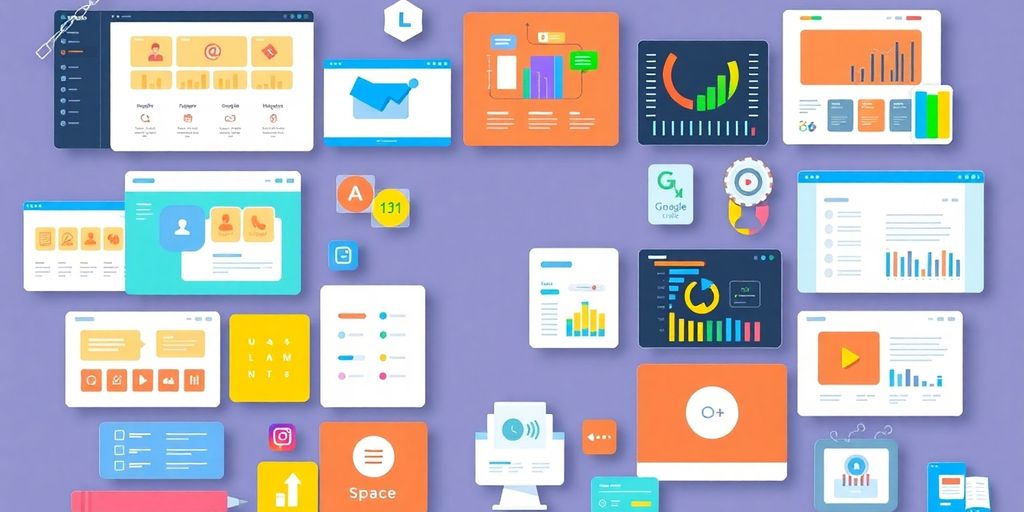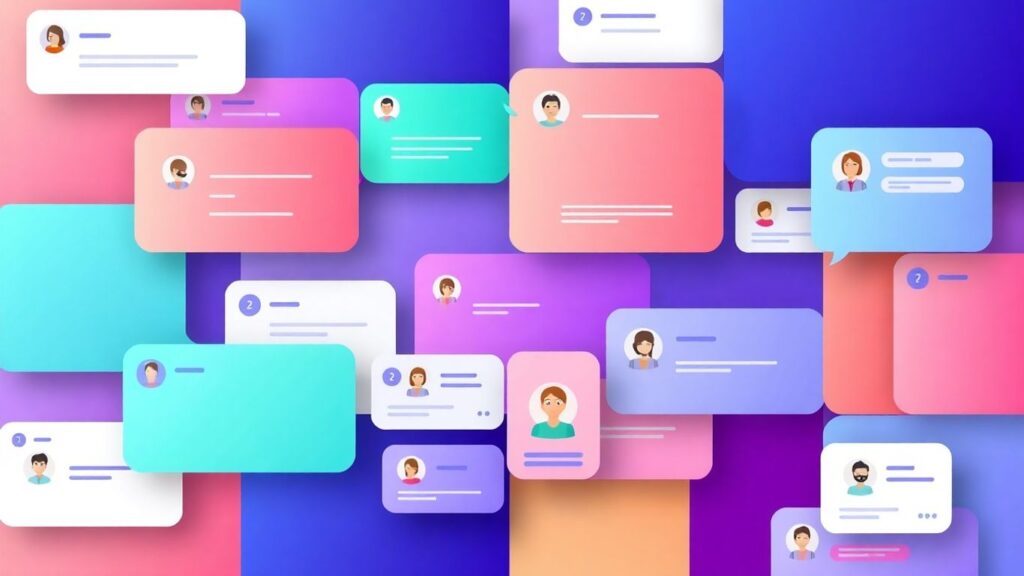Unlocking Revenue: How the AI Sales Bot is Revolutionizing Sales Strategies in 2024

In 2024, the AI Sales Bot is changing the game in sales. These bots are not just fancy gadgets; they’re practical tools reshaping how sales teams work. By automating routine tasks and offering personalized customer interactions, AI Sales Bots are helping businesses increase efficiency and boost revenue. This article explores the ins and outs of AI Sales Bots and how they’re becoming a vital part of modern sales strategies.
Key Takeaways
- AI Sales Bots are transforming sales by automating repetitive tasks, freeing up human salespeople to focus on closing deals.
- These bots help in personalizing customer interactions, leading to higher conversion rates.
- AI Sales Bots can improve sales forecasting, making it easier for businesses to plan and allocate resources effectively.
- Implementing AI Sales Bots requires strategic integration with existing systems and training for sales teams.
- The future of sales will heavily rely on AI, with evolving technologies continuously shaping the sales landscape.
Understanding The AI Sales Bot

Definition And Functionality
AI sales bots are not just fancy chat boxes; they’re powerful tools that significantly boost sales efforts. These bots are AI-driven software applications designed to automate various aspects of the sales process. By leveraging technologies like natural language processing (NLP) and machine learning, they engage with potential customers, qualify leads, schedule appointments, and provide personalized responses. They can operate across multiple channels, including websites, social media platforms, and messaging apps, ensuring consistent and efficient customer engagement.
Key Features Of AI Sales Bots
- 24/7 Availability: AI sales bots work around the clock, capturing leads and nurturing them even outside business hours. This increases conversion rates and ensures no potential customer is left unattended.
- Personalized Customer Interactions: These bots use customer data to recommend relevant products and offers, tailoring the sales outreach to individual needs.
- Data Collection and Analysis: AI sales bots gather and analyze customer interactions to reveal buying patterns, which helps in personalizing future sales strategies.
- Integration with CRM Systems: They access and process information from CRM systems and other databases to provide accurate and personalized responses quickly.
The Technology Behind AI Sales Bots
AI sales bots utilize various technologies to function effectively:
- Natural Language Processing (NLP): This allows bots to interpret human language, analyze customer intent, and deliver accurate responses, making interactions personalized and relevant.
- Machine Learning Algorithms: These enable bots to learn from past interactions, refine their responses, and predict customer needs, ensuring continuous improvement in communication.
- Integration Capabilities: AI sales bots often integrate with existing CRM or sales software, streamlining workflows and saving time for sales teams.
AI sales bots are revolutionizing the way businesses engage with customers. By automating routine tasks, they free up human agents to focus on building relationships and closing deals, thus enhancing overall sales efficiency.
Enhancing Sales Efficiency With AI Sales Bots

Automating Repetitive Tasks
Sales teams often drown in mundane tasks like data entry, scheduling, and follow-ups. AI sales bots step in to handle these chores, freeing up human agents to focus on more strategic activities. Imagine a bot that updates your CRM, sends follow-up emails, and even schedules meetings without breaking a sweat. This not only saves time but also reduces human error, ensuring that your sales processes run smoothly.
Streamlining Lead Qualification
AI sales bots excel at sorting through leads, identifying those with the highest potential, and passing them on to sales reps. This ensures your team spends time on leads that are more likely to convert. A bot can analyze interactions and customer data to qualify leads, prioritizing them based on their likelihood to purchase. This approach not only boosts conversion rates but also enhances the overall efficiency of the sales team.
Improving Sales Forecasting
Predicting future sales is crucial for planning and strategy. AI sales bots can analyze past sales data, market trends, and customer behavior to provide accurate forecasts. This helps businesses make informed decisions about inventory, staffing, and marketing strategies. By leveraging AI for forecasting, companies can better anticipate market demands and allocate resources more effectively.
Personalization In Sales Through AI Sales Bots
Tailoring Customer Interactions
In today’s fast-paced world, customers expect a personalized experience. AI sales bots are stepping up to meet these demands by tailoring interactions based on individual preferences and behaviors. These bots analyze data from previous interactions to predict what a customer might need next, offering suggestions that feel intuitive and personalized. This doesn’t just make customers feel special; it also drives engagement and sales.
- AI bots greet customers by name and remember past interactions, creating a seamless experience.
- They use machine learning to adapt their responses, ensuring each interaction is more refined than the last.
- Bots can provide personalized product recommendations, increasing the likelihood of conversion.
Leveraging Customer Data
AI sales bots are data powerhouses. They gather and analyze customer data to understand purchasing patterns and preferences. This data isn’t just for the bots; it feeds back into the sales strategy, giving human sales teams insights that can be used to tailor their approaches.
- Bots track customer behavior on websites and apps, providing real-time insights into what customers are looking for.
- They collect feedback during interactions, helping businesses refine their products and services.
- By analyzing this data, bots can identify trends and predict future customer needs.
Creating Targeted Marketing Strategies
With all this data, AI sales bots help create laser-focused marketing strategies. They segment customers based on their behavior and preferences, allowing businesses to target the right audience with the right message at the right time.
- Bots can automate the segmentation process, saving time and ensuring accuracy.
- They help craft personalized marketing messages that resonate with specific customer segments.
- By targeting marketing efforts, businesses can improve conversion rates and maximize ROI.
Personalization isn’t just a buzzword; it’s a powerful tool that, when used correctly, can transform how businesses interact with their customers. AI sales bots are at the forefront of this transformation, offering personalized experiences that drive engagement and sales.
AI Sales Bot Implementation Strategies
Choosing The Right AI Sales Bot
Picking the right AI sales bot isn’t just about getting the latest tech. It’s about finding the one that fits your needs like a glove. Start by figuring out what you need the bot to do. Do you need it to answer questions, qualify leads, or maybe handle customer orders? Knowing this helps you choose between different types of bots, like knowledge-based ones for FAQs or decision-tree bots for guiding customers. The key is to match the bot’s capabilities with your business goals.
Integrating AI With Existing Systems
Once you’ve got the right bot, the next step is making sure it fits in with your current systems. You don’t want a bot that works in isolation. Look for one that can easily connect with your CRM, marketing tools, and other software. This usually means finding a bot with open APIs or pre-built connectors. Integration is crucial because it ensures data flows smoothly across different platforms, avoiding silos and making your sales process more efficient.
- Open APIs: These allow your bot to communicate with various software platforms.
- Data Transfer Capabilities: Ensure smooth data exchange between systems.
- Pre-built Connectors: Simplify integration with popular CRM and marketing tools.
Training Sales Teams For AI Adoption
Your sales team needs to be on board with using AI sales bots. This means training them not just on how to use the bot, but on understanding its benefits. Show them how the bot can take over repetitive tasks, freeing them up to focus on what they do best—building relationships and closing deals. Training should also cover troubleshooting common issues and understanding the bot’s limitations. A well-prepared team is more likely to embrace the technology and use it effectively.
"Implementing AI sales bots is like adding a new member to your team—one that works 24/7 without needing a break. But for this to work, your human team needs to know how to collaborate with it effectively."
Measuring Success With AI Sales Bots
Key Performance Indicators
To really see how well AI sales bots are doing, you gotta look at some key numbers. Conversion rates are a biggie—how many leads actually turn into customers? This tells you if your bot’s really making a difference in closing deals. Then there’s customer retention. Are people sticking around after their first purchase? If the bot’s doing its job, it should help keep customers coming back.
Another important thing to watch is the sales cycle length. If deals are closing faster, that’s a win for the bot. It means it’s helping streamline the whole sales process, making it quicker and less of a hassle.
Analyzing Sales Data
Digging into the data is where you find out what’s working and what’s not. Look at metrics like engagement rate, satisfaction score, and conversation length. These numbers can tell you a lot about how customers are interacting with your bot. Are they engaged? Are they happy? How long are they sticking around to chat?
By keeping an eye on these stats, you can tweak your strategies and make sure the AI is really pulling its weight.
Customer Feedback And Insights
Customer feedback is gold. It gives you the real story on how your AI sales bot is performing. Are customers satisfied? Do they find the bot helpful or just annoying? Use surveys and direct feedback to get these insights.
Listening to what customers have to say can lead to big improvements. It’s not just about the numbers; it’s about understanding the experience from their perspective.
Gathering this feedback and making changes based on it can help fine-tune your AI bot, making it more effective and user-friendly.
Future Trends In AI Sales Bots
Evolving Technologies
AI sales bots are riding the wave of technological advancements, especially with the integration of key trends in conversational AI. These bots are becoming more sophisticated, using natural language processing and machine learning to engage customers in more human-like interactions. By 2025, it’s predicted that AI will manage 95% of customer interactions, drastically changing how businesses connect with their customers.
Predictions For Sales Automation
Looking ahead, AI sales bots are expected to automate even more aspects of the sales process. This includes not just lead generation but also nurturing and closing deals. Companies will likely see a rise in efficiency and a drop in operational costs as AI takes over repetitive tasks. AI’s ability to analyze customer data in real-time will allow for more precise targeting and personalization, leading to higher conversion rates.
Impact On Sales Workforce
The rise of AI sales bots will undoubtedly impact the sales workforce. While some fear job losses, others believe AI will take over mundane tasks, freeing up sales teams to focus on more strategic activities. Sales professionals will need to adapt, learning to work alongside AI to maximize its potential. This shift could lead to the creation of new roles focused on managing and optimizing AI-driven sales processes.
As AI continues to evolve, its role in sales will expand, offering new opportunities and challenges for businesses worldwide. Embracing these changes will be crucial for staying competitive in an increasingly digital marketplace.
Case Studies Of Successful AI Sales Bot Integration
Industry-Specific Applications
In retail, AI sales bots are transforming how stores interact with customers. Imagine walking into a clothing store and being greeted by a virtual assistant. This bot asks about your style preferences and budget, then suggests outfits that match your taste. It’s not just about clothes, though. These bots also keep you updated on your order status and answer any questions about product availability. In finance, banks are using AI bots to provide instant loan approvals and personalized investment advice. These bots handle complex queries and tailor their responses based on the customer’s profile.
Quantifiable Results
Take a look at the numbers. Retailers using AI bots have reported a 20% increase in customer engagement and a 15% boost in sales. In the finance sector, banks have seen a 30% reduction in response time for customer inquiries. Here’s a quick breakdown:
| Industry | Increase in Engagement | Sales Boost | Reduction in Response Time |
|---|---|---|---|
| Retail | 20% | 15% | N/A |
| Finance | N/A | N/A | 30% |
Lessons Learned From Implementations
- Start Small: Companies found success by initially implementing AI bots in specific areas before a full rollout.
- Continuous Training: Regular updates and training sessions for the AI ensure it stays relevant and effective.
- Customer Feedback: Listening to user feedback helps in refining bot interactions and improving customer satisfaction.
AI sales bots have the potential to improve customer service and sales, enhancing client experiences while enabling businesses like PulsePoint to streamline operations. By learning from these case studies, companies can better integrate AI into their sales strategies and achieve measurable success.
Wrapping It Up: The AI Sales Bot Revolution
So, here we are in 2024, and AI sales bots are really shaking things up in the sales world. They’re not just a fancy new tool; they’re changing how businesses think about selling. By taking over the boring, repetitive tasks, these bots let human salespeople focus on what they do best—closing deals and building relationships. It’s like having an extra team member who never sleeps. Sure, there are challenges, like making sure the data is good and dealing with privacy issues, but the benefits are hard to ignore. Companies using AI are seeing more leads, better conversions, and happier customers. As we move forward, it’s clear that AI isn’t just a trend; it’s a game-changer. Businesses that jump on board now are setting themselves up for success in a big way. So, if you’re in sales and haven’t started using AI, now’s the time to dive in and see what it can do for you.
Frequently Asked Questions
What is an AI sales bot?
An AI sales bot is a computer program that uses artificial intelligence to help with sales tasks. It can chat with customers, answer questions, and even help set up meetings.
How do AI sales bots improve sales?
AI sales bots make sales better by handling simple tasks like answering questions and sorting through potential customers. This lets human salespeople focus on more important things, like closing deals.
Can AI sales bots work with my current sales tools?
Yes, AI sales bots can often work with the tools you already use. They are designed to fit in with your current systems and help make everything work better together.
Are AI sales bots expensive to use?
The cost of using AI sales bots can vary. Some might be expensive, but others are affordable, especially when you consider how much time and money they can save by making sales work more efficiently.
Will AI sales bots take over human sales jobs?
AI sales bots are not here to take jobs away from people. Instead, they help by doing the boring tasks, so human salespeople can focus on more complex and important work.
How do I choose the right AI sales bot for my business?
To pick the right AI sales bot, consider your business needs, budget, and how well the bot works with your current systems. It’s also helpful to try a few options to see which one fits best.








Responses